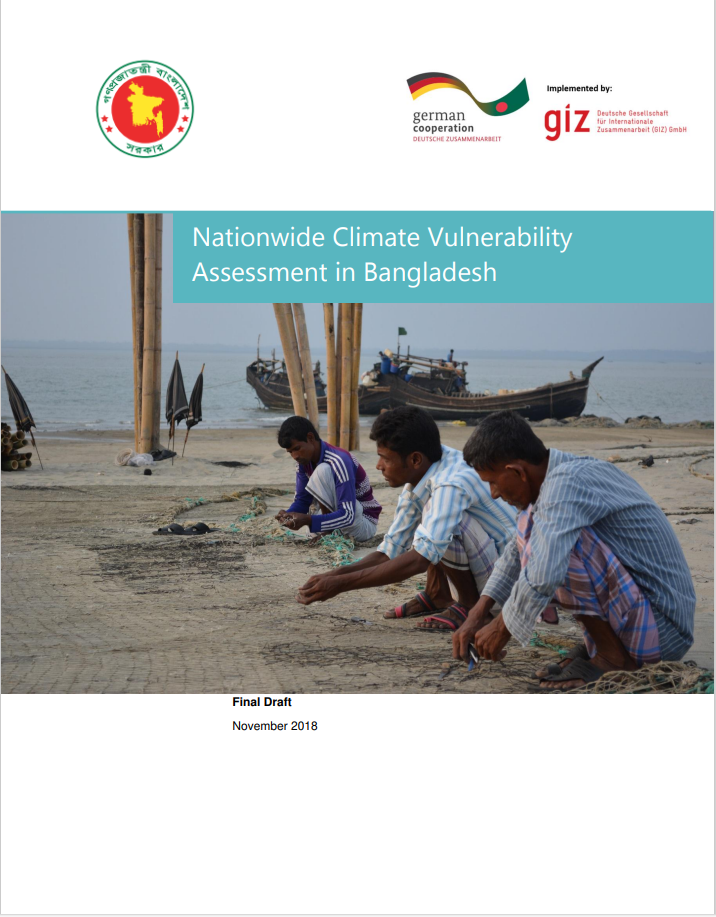🌿 COP 30 - Building a Greener Tomorrow
The 30th UN Climate Change Conference (COP 30) is taking place in Belém, Brazil. Stay informed about global climate actions, negotiations, and live sessions from 10 – 21 November 2025.
Get Updates
Nationwide Climate Vulnerability Assessment in Bangladesh

Files
Date
January, 2024Author(s)
- Dr. Hasse Goosen
- Tanvir Hasan
- Sanjib Kumar Saha
- Dr. Nahid Rezwana
- Md. Rejaur Rahman
- Mohammad Assaduzzaman
- Ashraful Kabir
- Dr. Ghislain Dubois
- Catharien Terwisscha van Scheltinga
Abstract
Under the current climate conditions and due to its geographic location and topography, Bangladesh is exposed to a multitude of natural hazards such as floods, storm surges, droughts, riverbank erosion, etc. At the same time, new issues related to socio-economic factors and ongoing climate change impacts are emerging. Changes in temperature and precipitation patterns could affect, for instance, heat stress in the rapidly urbanising cities, groundwater depletion in rural productive areas, and so on. Emerging challenges from climate change include salinity intrusion and increasing coastal floods due to sea level rise. These impacts are threatening biodiversity, water resources, agriculture and settlements. A key question is, how to adjust development oriented planning to address issues triggered by climate change. There is a growing need for continuously updated and authentic information and data to enable the identification and monitoring of vulnerable areas and sectors in Bangladesh, and to design tailored adaptation strategies and measures. The elaboration of a Nationwide Climate Vulnerability Assessment (NCVA) is thus intended to provide the Government of Bangladesh with an evidence-based tool, prioritising adaptation funding and intervention within the country. This assessment was led by a team of international and national experts and was conducted through a systematic step by step approach applying participatory methods. The climate vulnerability was assessed for eight sectors at the Upazila level: Agriculture, Livestock, Fisheries, Navigation, Transport and Infrastructure, Water Resources, Biodiversity, Natural Disasters and Human Health. With this, the NCVA may serve as a tool to take on an integrated climate vulnerability perspective beyond the commonly regarded domains of flood risk and water management.
Citation
This report is a joint publication of the Ministry of Environment, Forest and Climate Change, Government of the People‘s Republic of Bangladesh and GIZ. This report of any portion thereof cannot be copied, microfilmed or reproduces for any commercial purposes. Information therein can, however, be used and published with acknowledgement.
Publisher
The Ministry of Environment, Forest and Climate Change, Government of the People‘s Republic of Bangladesh and GIZ
Rights Holder
The Ministry of Environment, Forest and Climate Change, Government of the People‘s Republic of Bangladesh and GIZ.
URI
https://knowledgehub.pksf.org.bd/collections/c2Zaa2owYm5VNDZUckRJaTI1Rmxkdz09
